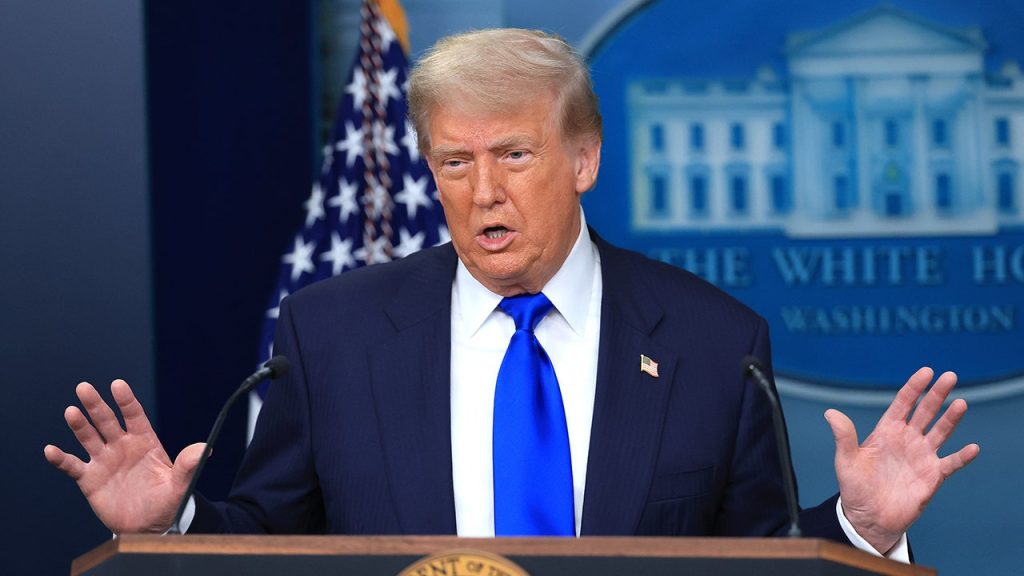Trump Administration Appeals Tariff Authority Case to Supreme Court
In a significant legal move with far-reaching economic implications, the Trump administration has formally asked the Supreme Court to quickly rule on whether President Donald Trump has the legal authority to impose widespread tariffs under federal emergency law. This urgent appeal follows a divisive 7-4 federal appeals court ruling that deemed a substantial portion of Trump’s tariffs illegal under the 1977 International Emergency Economic Powers Act, though the court allowed the duties to remain in place pending final resolution.
The legal challenge originated from numerous states and small businesses who filed lawsuits arguing that these tariffs were causing substantial economic damage. As Jeffrey Schwab, an attorney with the Liberty Justice Center, expressed, “These unlawful tariffs are inflicting serious harm on small businesses and jeopardizing their survival.” This sentiment reflects growing concerns among various economic sectors about the impact of these tariffs on American businesses. The case highlights the tension between presidential authority in international trade matters and the economic consequences experienced by domestic enterprises caught in the crossfire of broader trade policies.
In their appeal to the Supreme Court, the Trump administration presented a stark warning about potential consequences if these tariffs were to be struck down. “That decision casts a pall of uncertainty upon ongoing foreign negotiations that the President has been pursuing through tariffs over the past five months, jeopardizing both already negotiated framework deals and ongoing negotiations,” the administration argued, emphasizing that “the stakes in this case could not be higher.” The administration also noted the significant revenue implications, pointing out that the tariffs have generated $159 billion since late August—more than double the amount collected in the previous year. This revenue stream represents a substantial financial consideration in the ongoing legal battle.
The case touches on fundamental constitutional questions about the separation of powers. While the Constitution explicitly grants Congress the authority to set tariffs, lawmakers have over the years delegated significant tariff-setting powers to the executive branch. President Trump’s aggressive use of these delegated powers has pushed the boundaries of presidential authority in trade matters. Interestingly, some of Trump’s earlier tariffs on steel, aluminum, automobiles, and certain Chinese goods were maintained by the Biden administration and are not being contested in this particular case. This continuity across administrations highlights the complex and sometimes bipartisan nature of U.S. trade policy, even as the legal boundaries of presidential authority remain contested.
Legal experts monitoring the case have raised another significant concern: if the courts ultimately invalidate these tariffs, the U.S. Treasury might face the daunting prospect of refunding billions of dollars already collected from importers. This potential financial obligation adds another layer of complexity to a case already fraught with economic and constitutional implications. The Supreme Court now faces pressure to make a timely decision on whether to hear the case directly, as prolonged uncertainty could further complicate international trade negotiations and domestic economic planning. The Court’s decision could potentially lead to a landmark ruling that defines the limits of presidential power in trade matters for generations to come.
As this legal battle unfolds, businesses across America find themselves in a precarious position—caught between complex international trade politics and immediate economic realities. Small business owners particularly feel the squeeze as they navigate higher costs while trying to remain competitive. Meanwhile, the administration continues to defend these tariffs as essential tools for negotiating better trade deals and protecting American industries. The Supreme Court’s decision on whether to take up this case will be closely watched by economic and legal observers alike, as it may reshape the landscape of American trade policy and executive authority in profound ways for years to come.


